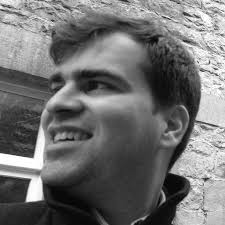Electroencephalography (EEG)
See the following -
5 DIY Hardware Platforms for Physiological Computing
 Physiological computing focuses on the use of biosignals for the development of interactive software and hardware systems capable of sensing, processing, reacting, and interfacing the digital and analog worlds. However, biosignals have specific requirements for which typical physical computing platforms are not particularly tuned. Until recently, many projects ended up hindered by high costs and limited access to suitable hardware materials. That scenario is different today, partially thanks to the following 5 DIY hardware platforms...
Physiological computing focuses on the use of biosignals for the development of interactive software and hardware systems capable of sensing, processing, reacting, and interfacing the digital and analog worlds. However, biosignals have specific requirements for which typical physical computing platforms are not particularly tuned. Until recently, many projects ended up hindered by high costs and limited access to suitable hardware materials. That scenario is different today, partially thanks to the following 5 DIY hardware platforms...
- Login to post comments
Brainwave Technology Breakthrough?
In a project that could be a boon for ALS patients, and potentially others with neurodegenerative conditions, Philips and Accenture have developed proof-of-concept technology that enables users to control devices using brainwaves...
- Login to post comments
Child Mind Institute's Healthy Brain Network Releases Open Dataset
 The Child Mind Institute today announced the release of the first dataset from the groundbreaking Healthy Brain Network study, and the inauguration of the Healthy Brain Network Biobank. The study and the open access Biobank address the pressing need for a large, comprehensive dataset that researchers will use to leverage new technologies and develop tools for diagnosing and managing mental health and learning disorders...
The Child Mind Institute today announced the release of the first dataset from the groundbreaking Healthy Brain Network study, and the inauguration of the Healthy Brain Network Biobank. The study and the open access Biobank address the pressing need for a large, comprehensive dataset that researchers will use to leverage new technologies and develop tools for diagnosing and managing mental health and learning disorders...
- Login to post comments
Python-based Open Source Eye Tracking Tool
 I have a deep interest in educational psychology, and so I was fascinated by what I read about PyGaze—an open source toolbox for eye tracking in Python. The website told me that it runs on Linux, but I wanted to learn more about eye tracking and the role it plays in psychological research. I also wanted to know more about the project and how it is contributing to research and its implications for open source. In this interview, the lead developer for the project, Edwin Dalmaijer, who works at the University of Oxford's Department of Experimental Psychology doing research and programming, provides a fascinating description of PyGaze and the significance of eye tracking in research...
I have a deep interest in educational psychology, and so I was fascinated by what I read about PyGaze—an open source toolbox for eye tracking in Python. The website told me that it runs on Linux, but I wanted to learn more about eye tracking and the role it plays in psychological research. I also wanted to know more about the project and how it is contributing to research and its implications for open source. In this interview, the lead developer for the project, Edwin Dalmaijer, who works at the University of Oxford's Department of Experimental Psychology doing research and programming, provides a fascinating description of PyGaze and the significance of eye tracking in research...
- Login to post comments
We Turn Brainwaves Into Sound For Music And Medicine
A neuroscientist and a musician explain how they built the Brain Stethoscope, which is both brain scanner and musical instrument...Why is a cellist and sound artist collaborating with someone who deals with brain disorders?
- Login to post comments